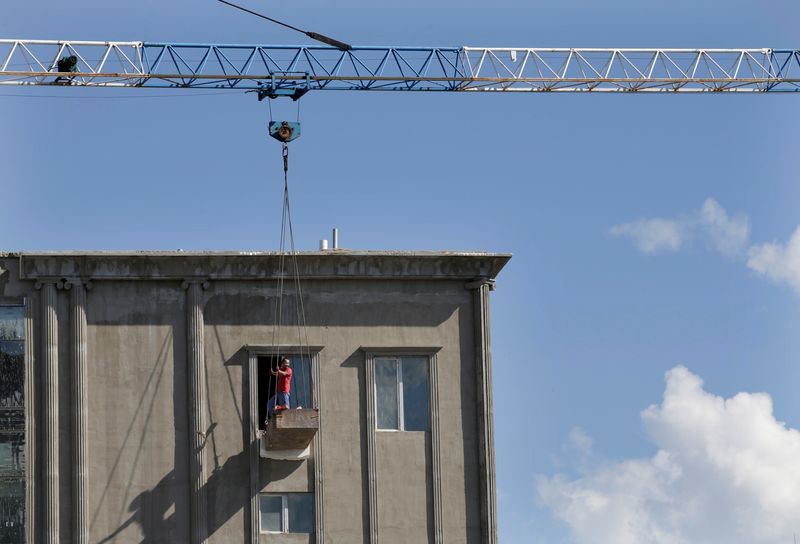By Jorgelina do Rosario and Karin Strohecker
LONDON (Reuters) - Mongolia hopes to double its GDP-per-capita to $10,000 before the decade is out but that will require a huge ramp up in investments in its key mining and metals sector, the country's Finance Minister Javkhalan Bold said on Tuesday.
The landlocked and mineral resources-rich country derives a quarter of its gross domestic product and 90% of exports from mining, and is home to Oyu Tolgoi, one of the world's largest-known copper and gold deposits in the Gobi desert.
"Both in terms of explorations for the mining or the exploitation and also even in the processing ... we would be very much happy to look to work with foreign investors," said Javkhalan, declining to give any details on projects in the works.
It expects GDP-per-capita to rise to $6,000 this year from $5,000 last year, aiming to reach $10,000 before 2030.
To realise its growth targets, Mongolia needs another two or three projects the size of Oyu Tolgoi, in which the government had invested as much as $10 billion, the minister said, adding the terms of any arrangement would have to be win-win for both sides.
Wedged between China and Russia, the country has garnered attention from governments such as the United States and company bosses including Tesla (NASDAQ:TSLA) CEO Elon Musk seeking to secure access to metals to power the green energy boom.
But Mongolia has struggled in the past to cash in on its riches, with poor governance of its state-owned mining companies leaving the country saddled with billions of dollars of debt.
In August, the country said it had settled almost all of its outstanding tax issues with Rio Tinto (LON:RIO) over development of Oyu Tolgoi, which is owned 66% by the Australian mining company and 34% by the government respectively. Some of those issues were still outstanding, the minister said.
"Of course we will try to reach some depth of understanding without any court process," he said, adding that going to court would be a last resort - though he did not expect this to be an impediment to the future project development.
CREDIT RATING HOPES
On the wider economy, where inflation is running at 8.6% in November according to central bank data, Javkhalan said he had no expectations that "Mongolia's policy rate will go down anytime soon" with the benchmark interest rate standing at 13%.
However, he was hopeful to advance talks with credit rating agencies this year.
"It is very likely that Mongolia will be successful in terms of getting our sovereign country rating upgraded," Javkhalan said. Fitch reaffirmed Mongolia's rating at B in 2023.
Javkhalan also said the government had no plans to issue on international markets, having completed a buyback of a 30-billion yen ($208 million) Development Bank of Mongolia bond and a tender of its 2024 note, with the next international bond coming due in 2026.

The government will ramp up its support for corporate issuance from Mongolian companies and was also looking into supporting the capital Ulaanbaatar in launching its debut municipal bond in the near future.
($1 = 143.9900 yen)